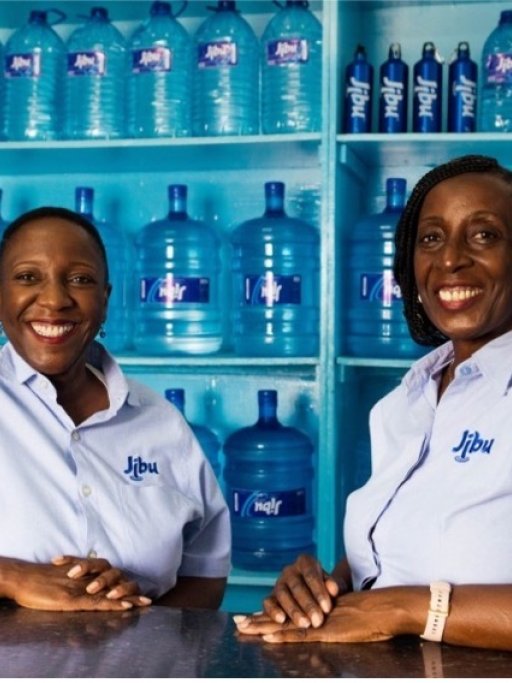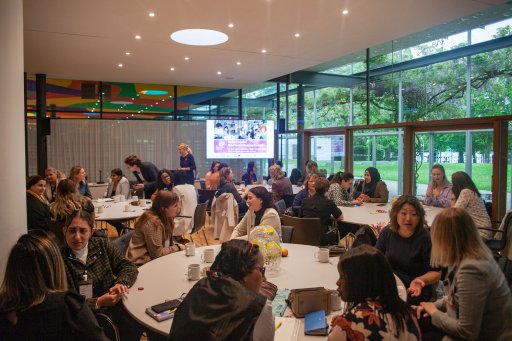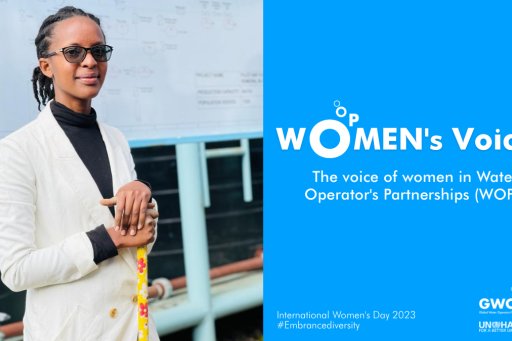“Women are entrepreneurs, yet have limited access to capital and markets,” exemplified Kamala Harris while delivering a speech in Ghana.
Procurement in the water sector is the delivery mechanism for Safe Water for All
African women are the future and the present of Africa. Advancing the economic empowerment of their businesses in the water sector is both smart economics and a lever to achieving gender equality.
Gender-responsive procurement is the selection of services, goods and civil works that considers its impact on gender equality and women's empowerment. It supports attaining gender equality for women-owned businesses in the water sector, affirmed by SDG12.7: promote sustainable public procurement practices in line with national policies and priorities. Sustainable procurement entails social factors, including gender balance, equal policies, resource distribution, fair working conditions and respecting human rights. This promotes equality and inclusivity through supplier diversity and market access opportunities for women-owned businesses in the water sector towards women's economic empowerment.

Women entrepreneurs are a growing economic force; sub-Saharan Africa boasts the world's highest rate of women entrepreneurs, at 27%. Thus, procurement diversity and inclusion in the water sector is a powerful tool to economically empower women and combat poverty by increasing their incomes for sustainable social and economic benefits.
Women-led Businesses in Africa's Water Sector Face Barriers to Procurement
Only 1% of women-led firms bid for government tenders in Uganda in 2023
Gender-responsive procurement strategies are relatively new in Africa, yielding mixed results, including barriers in the water sector. The governance barriers reproduce and embed gender inequalities and discrimination, creating significant challenges for women in the water entrepreneur sector. Further, structural and systematic barriers result from a lack of gender-inclusive contracts, and cultural barriers perpetuate male dominance, limiting women's confidence and opportunities. Unpaid family care work, geographical disparities, and inadequate access to finance further hinder their ability to compete.
Financial barriers exist as most of Africa's women are credit-constrained given their less physical and reputational collateral and liquid assets like land and properties to bid for tenders. They are often small-scale, lacking the economic muscle to adapt to changing market conditions. Corruption-related barriers reduce trust in competitive bidding, discouraging women-owned businesses' participation. Corruption is also associated with abuse of power for sexual exploitation, deterring women who fear sexual extortion and the stigma associated with being sexually compromised.
Removing Barriers to Reform Gender-responsive Procurement
By collectively addressing the barriers women-owned businesses in water face in procurement processes and systems, transformative change requires an integrated approach to women's economic empowerment founded on equity and inclusion.

Undertaking a baseline Survey informs the basis for the development of a comprehensive Theory-Of-Change and system-wide Strategy for Mainstreaming Organisational-wide Gender-Responsive Procurement activities, including gender budgeting and Gender-responsive Procurement policies and manuals that standardise solicitation documentation and qualification procedures with gender responsiveness provisions. For example, Kenya was one of the first African countries to have an affirmative action law on public procurement through its Access to Government Procurement Opportunities Program, which requires 30% of government contract opportunities set aside for women, youth, and persons with disabilities. Women still face competition from local bidders with higher capacities to take on larger contracts, especially in technical sectors like water. Gender disaggregated data can classify women-owned businesses based on ownership and control to enable measuring, tracking, and reporting progress through results-based management.
Additionally, subcontracting requirements for some vendors provide opportunities for women-owned businesses to participate in their supply chains. Install mechanisms of preference on price and margins, encouraging best value award criteria for women ownership as a tie-breaker for suppliers that score the same in evaluations and prequalifying women-owned businesses in water for specific contracts. Pro-active Certified Capacity-building programmes for women-owned businesses in the water sector on procurement skill development, searching tender opportunities, submitting competitive bids, understanding contract terms, and basic accounting to break knowledge barriers to compete successfully. It is important also to give meaningful feedback to unsuccessful bidders. Organisations should partner with women's business organisations and networks to find Women-Owned Businesses and the media to spread awareness.
Finally, rules regarding prompt payment of women-owned businesses and access to affordable seed capital, including subcontract level, should be enforced, for instance, Africa Union's Women and Youth Financial and Economic Inclusion initiative. Credit lenders should identify and remove discriminative loan requirements.
This blog post was published as of the 2024 International Women's Day, which presents insights into women's empowerment from the viewpoint of the GWOPA's members who strive to create social inclusion and gender equality in the water and sanitation sector. The post is a revised version of the article titled "Gender-Responsive Procurement in Africa's Water Sector is a Women's Rights Issue," written by Euphresia Luseka, Director of Water Governance and Systems Strengthening. You can read the full article to gain a better understanding of gender-responsive procurement in Africa here.



